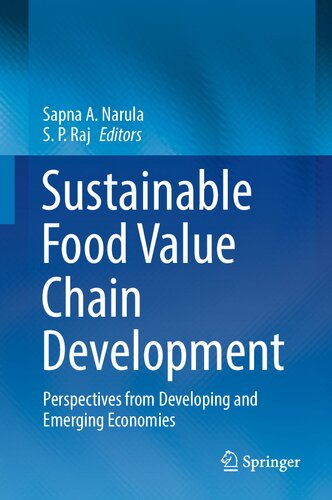

Most ebook files are in PDF format, so you can easily read them using various software such as Foxit Reader or directly on the Google Chrome browser.
Some ebook files are released by publishers in other formats such as .awz, .mobi, .epub, .fb2, etc. You may need to install specific software to read these formats on mobile/PC, such as Calibre.
Please read the tutorial at this link: https://ebookbell.com/faq
We offer FREE conversion to the popular formats you request; however, this may take some time. Therefore, right after payment, please email us, and we will try to provide the service as quickly as possible.
For some exceptional file formats or broken links (if any), please refrain from opening any disputes. Instead, email us first, and we will try to assist within a maximum of 6 hours.
EbookBell Team

5.0
48 reviewsThe book addresses the gap that exists in sustainable value chain development in the context of developing and emerging economies in meeting the sustainable development goals. The book adopts a holistic approach and discusses significant aspects of the topic such as challenges, opportunities, best practices, technology and innovation, business models, and policy formulation. The chapters focus on all the existing and potential actors in the value chain. Comprising invited chapters from leading researchers, policymakers, practitioners, and academicians working on this topic, this edited book is useful for scientists, researchers, students, research scholars, and practitioners as it builds the latest interdisciplinary knowledge in the area. An important aspect of the book is the case studies of already ongoing projects from various emerging economies around the world.
Contributions are divided into four sections―sustainable food systems and circular economy: tackling resource use, efficiency, food loss, and waste problems; technology and innovation for food value chain development; toward responsible food consumption; linking small farmers to markets: markets, institutions, and trade. Significantly, the book is organized in the context of Sustainable Development Goals and has direct relevance and linkages with SDG 1 (poverty alleviation), SDG 2 (zero hunger), SDG 3 (good health and well-being), SDG 4 (quality education), SDG 5 (gender equality), SDG 12 (responsible consumption and production), SDG 13 (climate action), and SDG 17 (partnerships).